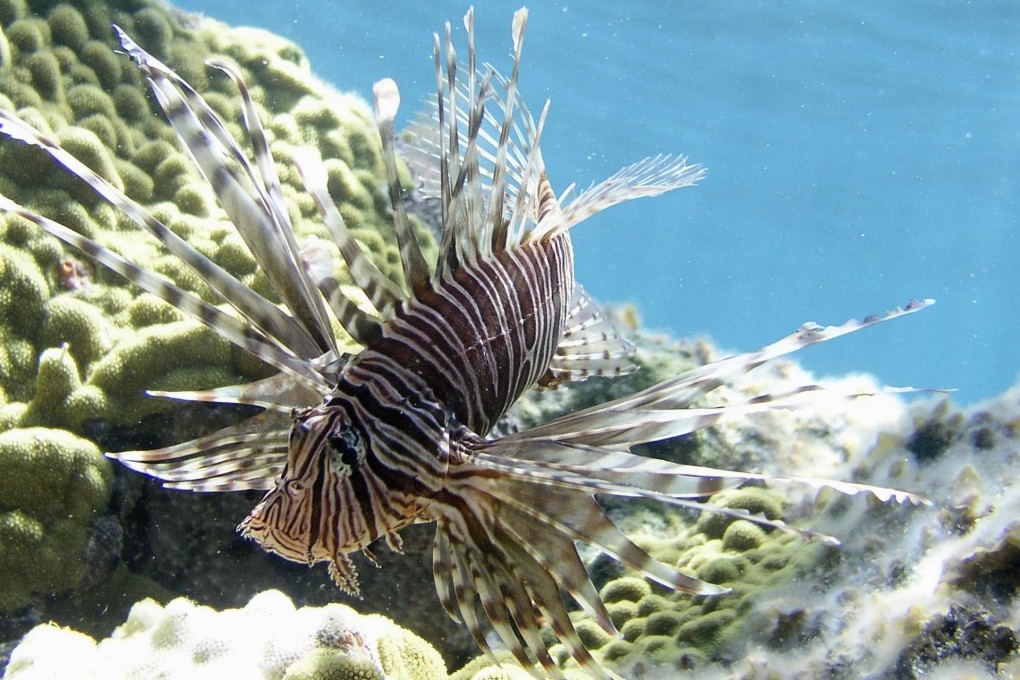Scientists try captive approach to fighting invasive lionfish
Research by US scientists in the Cayman Islands suggests native predators can be trained to gobble up invasive lionfish that colonise regional reefs and voraciously prey on juvenile marine creatures.

Research by US scientists in the Cayman Islands suggests native predators can be trained to gobble up invasive lionfish that colonise regional reefs and voraciously prey on juvenile marine creatures.
The invasive species with a flowing mane of venomous spines has no natural predators in the Atlantic and Caribbean Sea. Native sharks and groupers typically avoid healthy lionfish, a native to the Indian and Pacific oceans that was likely introduced through the pet trade.
But when a University of Florida team tethered lionfish to lead weights on reefs off Little Cayman, underwater video cameras showed nurse sharks and Nassau groupers gulping them down.
Thomas Frazer is one of the researchers and the director of the University of Florida's School of Natural Resources and Environment. He said the study suggested that sharks and groupers "have the capacity to learn to pursue, capture and consume" lionfish without human intervention.
"Findings from this study simply suggest that conditioning is likely to facilitate the learning process. On a local scale, predation on lionfish by sharks and groupers is likely to enhance culling efforts," Frazer said.
Some researchers and lionfish wranglers not involved in the study expressed doubt about the findings, arguing that tethered fish did not behave naturally and likely triggered an unusual feeding response in predators.
